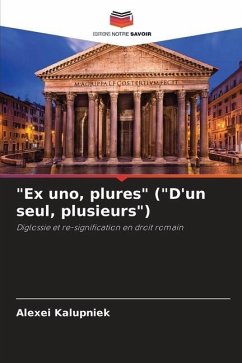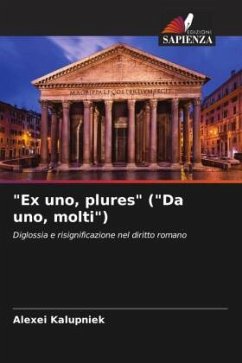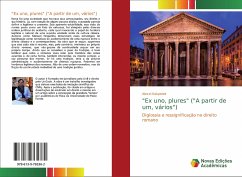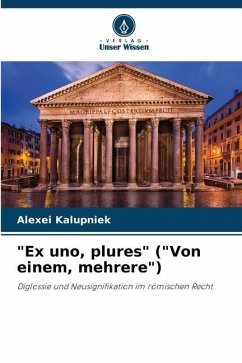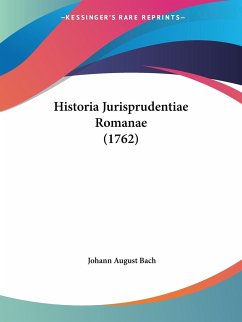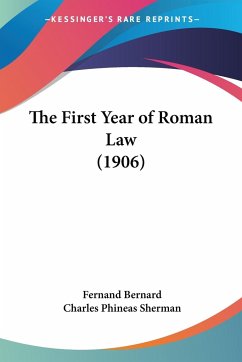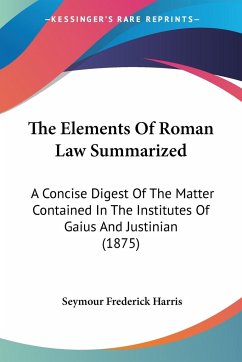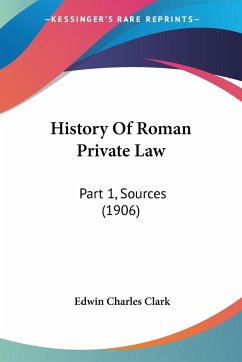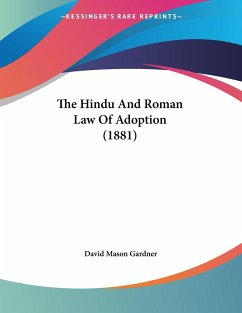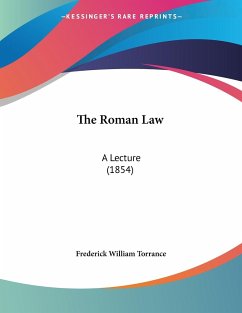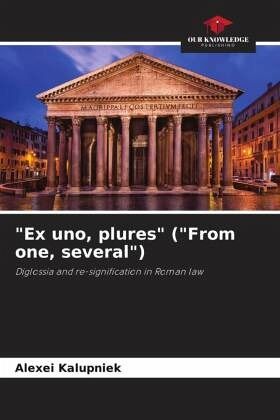
"Ex uno, plures" ("From one, several")
Diglossia and re-signification in Roman law
Versandkostenfrei!
Versandfertig in 6-10 Tagen
27,99 €
inkl. MwSt.

PAYBACK Punkte
14 °P sammeln!
Rome was a society that honoured its ancestors, its law and its history. There, with the exception of a few tremors, the past seemed to define and legitimise the present. This apparent stability, this vision of the norm as a fact of nature, was sought after by the various legal orders of the West, each claiming the role of legitimate and natural heir to a supposed unity stemming from classical culture. Authors such as Manuel Hespanha denounce these legitimisation strategies as attempts to cover up a rupture between classical and contemporary law. In the work that follows, we suggest that this ...
Rome was a society that honoured its ancestors, its law and its history. There, with the exception of a few tremors, the past seemed to define and legitimise the present. This apparent stability, this vision of the norm as a fact of nature, was sought after by the various legal orders of the West, each claiming the role of legitimate and natural heir to a supposed unity stemming from classical culture. Authors such as Manuel Hespanha denounce these legitimisation strategies as attempts to cover up a rupture between classical and contemporary law. In the work that follows, we suggest that this split is not recent but, on the contrary, intrinsic to Roman law itself, which did not enjoy continuity even in its own time. Even if we consider the weight of tradition, it is worth remembering that it was up to living Romans to look after the memory of absent things and, in a way, also to interpret, or even compose, the posthumous voice of the dead. If there is a tradition, it would be theadministration and cover-up of various ruptures. We may be legitimate heirs of the Romans. Not of a normative order, but of the fiction of the unshakeable continuity of a legal tradition.



